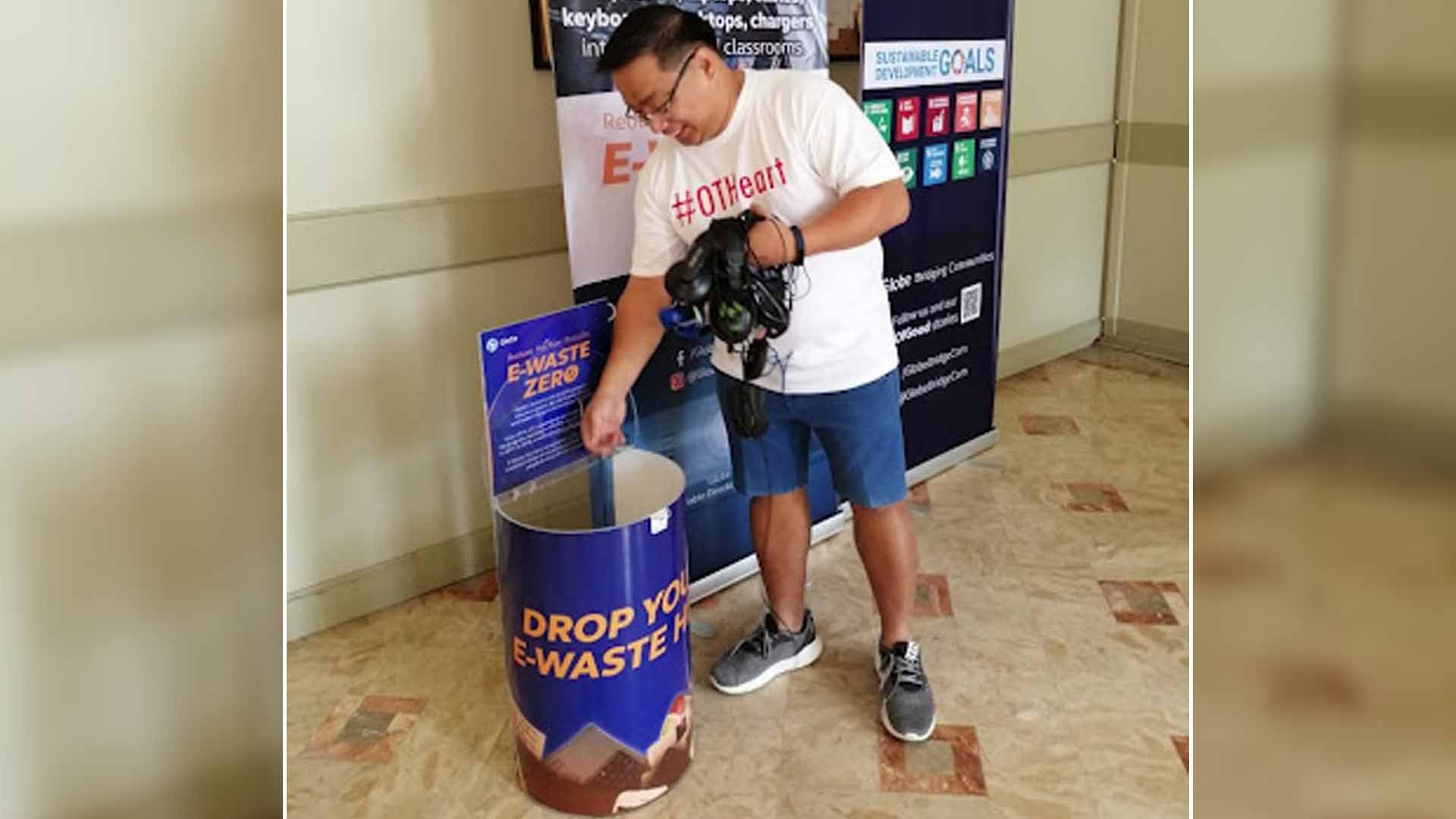As part of its environmental protection and sustainability advocacy, Globe encourages everyone to practice responsible e-waste management and join its E-Waste Zero program. E-waste Zero focuses on responsible disposal and recycling of electronic waste, one of the fastest-growing waste streams in the Philippines today.
Miguel Bermundo, Globe Senior Manager for Sustainability Integration, discussed the program during his talk at the latest Liveable Cities Lab session on “Circular Economy: Take, Make, Use, Repeat!” presented by the Liveable Cities Challenge Philippines and the League of Cities of the Philippines, in partnership with Globe. It aims to equip cities with knowledge and insights for designing better solutions for their communities.

E-waste refers to any old, non-working, and end-of-life devices. These cover all electrical and electronic equipment and its components, such as electronic or battery-operated devices and IT accessories and peripherals that are no longer working or wanted.
Launched in 2014, E-waste Zero has served as a platform for everyone to donate their old, non-working electronic devices through over 120 e-waste drop-off points nationwide, mostly in Globe Stores and malls. This allows the public to join the fight against e-waste wherever they may be.
“You can all participate in E-Waste Zero in two very easy ways. First, you can drop off your e-waste in select Globe stores or request a free door-to-door pick-up. Second, you can most certainly partner with us through a signed agreement should you choose to have a regular e-waste pick-up arrangement with us. This is our commitment,” said Bermundo.

So far, Globe has over 80 partner corporations, organizations, local government units, and schools. Since 2014, the program has responsibly recycled 1.4 million kilograms of e-waste.
The recovery and recycling program ensures that e-waste like old mobile phones, broken chargers, and other electronic gadgets do not end up in landfills. It aims not just to promote proper disposal but also to educate people about the potential harm of e-waste to the environment. Visit https://www.globe.com.ph/about-us/sustainability/environment.html for the complete list of drop-off points nationwide or to request a free door-to-door hauling of bulky e-waste.
“E-Waste Zero is one of Globe’s key sustainability programs, focused on caring for the environment. It also helps attain circularity in the supply chain,” said Bermundo.
“With circularity, nothing is wasted since everything goes back to the system. Through this process, the value of the product is maximized. We make the most of the materials we have available to us. We find a way to keep using it and find returning value,” he added.

Unlike the linear economy model which is focused more on a take-make-dispose scheme, Circularity starts with product design, production, distribution, and consumption. It continues the collection of used products and recycling. Eventually, these are reinserted into the system as raw materials. The main focus of this model is to maintain the added value of a material while eliminating waste as best as possible.
As part of its commitment to circularity, Globe has joined a multi-stakeholder partnership with the United Nations Industrial Development Organization (UNIDO), DENR and Ecowaste Coalition earlier this year which put up the country’s second community e-waste Treatment, Storage, and Disposal (TSD) facility in Barangay Dampalit, Malabon City. This will help informal e-waste pickers transition into a formal economy by capacitizing them to properly handle e-waste and by protecting them from environmental and occupational health hazards.
E-waste Zero has been featured by GSMA as one of the global best practices for take back and collection programs. GSMA is an international organization that represents the interests of mobile network operators worldwide.
E-waste Zero is part of Globe’s support to the United Nations Sustainable Development Goals, specifically, UN SDG No. 12 on Responsible Consumption and Production. It hopes to achieve economic growth and sustainable development by urgently reducing ecological footprint, increasing resource efficiency, and promoting sustainable lifestyles. Globe remains committed to upholding the UN Global Compact principles and contributing to 10 UN SDGs.
To know more about Globe’s sustainability initiatives, visit https://www.globe.com.ph/about-us/sustainability.html.








